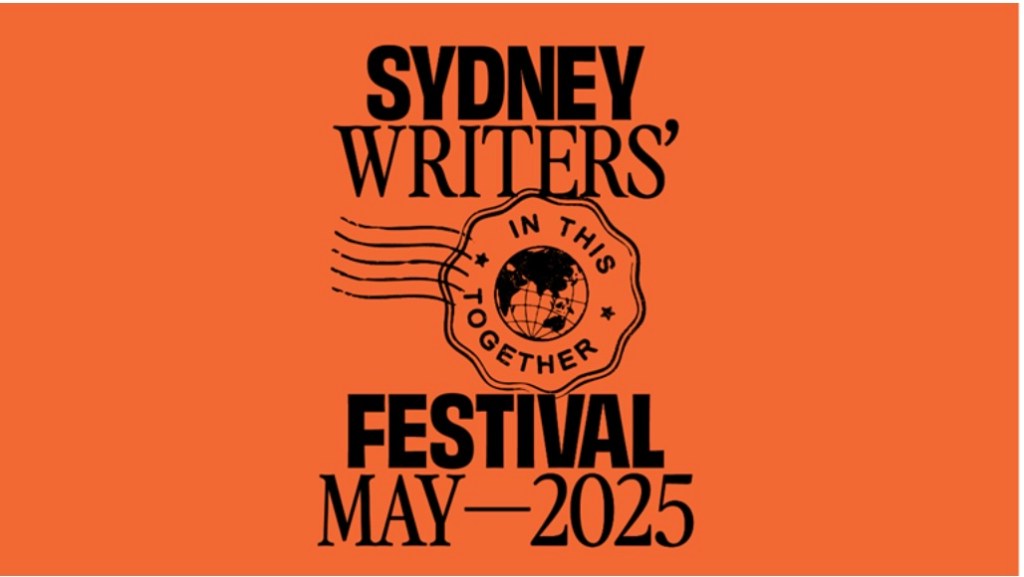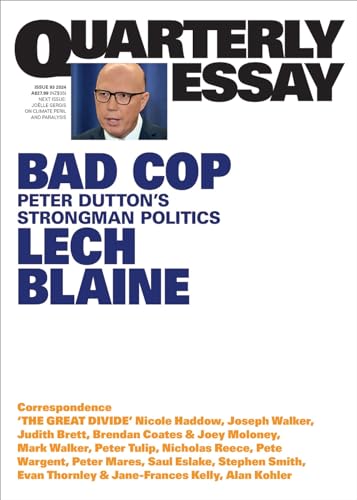
It’s raining in Sydney, but the Writers’ Festival shines on, apostrophe intact.
This year’s theme is ‘In This Together’. The Emerging Artist and I plan to take in about 17 sessions between us, mostly in it together. Given recent attacks elsewhere on speech about the genocide in Gaza, I will be disappointed but not surprised if some of our booked sessions are cancelled, but here’s hoping.
22 May 1.00: Beyond the Self (link to come when podcast is released)
The Festival website description of this session begins:
Anchored in our human body, our experience of being in the world extends outwards from our sense of self.
Oh well, I thought, the program descriptions don’t usually determine the conversation.
The four panellists have written very different books, and come from very different contexts. What they have in common is that they are all First Nations people. The chair was Bardi Jawi man Bebe Oliver, who first came to prominence as WA Young Australian of the Year for his work as a classical pianist and composer has had several books of poetry published. Other panellists were Bundjalung and Kullilli man Daniel Browning who has worked as a journallist and broadcaster for many years, and has recently published Close to the Subject, a collection of personal essays; Kaurareg Aboriginal and Kalkalgal, Erubamle Torres Strait Islander man Thomas Mayo, who played a huge role in the Voice referendum and whose books, especially Always Was, Always Will Be: The Campaign for Justice and Recognition Continues, reflect his activism; and Yuwaalaraay woman Nardi Simpson, originally half of the singing duo Stiff Gins, and now author of Song of the Crocodile and The Belburd.
Nardi Simpson made a valiant attempt to tie the conversation back to the idea of bodies – go out from my body to yours when I sing for you, and when I write a book, these funny little squiggles on an oblong thing can make other people tingle. But mostly the yarning (as Bebe called it a number of times) ranged freely. All four panellists had interesting things to say, and they connected with each other, but I’m at a loss to summarise.
One theme that emerged for me was to do with aurality. Paradoxically, Daniel Browning said that for years he had sat in climate-controlled studios in the ABC talking to a microphone with little or no sense (and I may have added the ‘little or’ there) that there was anyone listening, whereas when he wrote an essay, he had an immediate sense that he was talking to someone. Spoken words are transient; written-down words have power. Nardi Simpson reported more or less the opposite: when you sing to an audience you’re right there with each other, but who knows what happens with a book? Thomas Mayo, likewise, said that he has come to love speaking to people (he did a lot of that, brilliantly, during the Voice Referendum campaign) – looking them in the eye, and if there’s a disagreement you can see it there. Nardi Simpson made explicit the underlying notion, that First Nations people come from an oral culture, and she and Daniel Browning told moving stories about audio versions of their books reaching people who wouldn’t otherwise have read them.
What all panellists agreed was that we are living in a time in this country when First Nations stories need to be told, and there is an audience for them. ‘If I/we don’t tell the stories, someone will say it didn’t happen.’
There was a brief conversation about the experience about being misunderstood, including very different feelings about the editing process. Nardi Simpson spoke directly to one of my current concerns when she said (and this is not an exact quote): ‘The book is there. Yuwaalaraay will find this in it.Aboriginal people will find this. Allies will find this. People who nothing about me or us will find this.’
2.00: Bringing the Past to Life (link to come when podcast is released)
The incomparable Kate Evans, co-presenter of The Bookshelf on ABC Radio National, did a lovely job managing this conversation about historical fiction with Emily Maguire whose latest book, on my To Be Read Soon list, is the novel Rapture, and Jock Serong, whose urban fairytale Cherrywood sounds terrific – I have seen a narration of its plot hold a seven-year-old spellbound.
Somehow a novel based on the 9th century CE legend of Pope Joan (or is it only a legend?) and one about a hotel in Fitzroy that lifts its skirts and wanders around the city made an excellent pairing. They both, it turns out, deal with institutions that have forgotten what they are here for. The Catholic Church in Maguire’s book is so concerned with its rituals and procedures that it has lost sight of its central mission. The corporate law firm in Cherrywood is hell bent on tracking down the wandering pub, but only one old man whom everyone ignores remembers why.
It was fun.
The Festival is happening on Gadigal land, I have written this on Gadigal and Wangal land. I acknowledge their Elders past present and emerging. As Bebe Oliver said in acknowledging country this afternoon, Always was, always will be Blak land.


